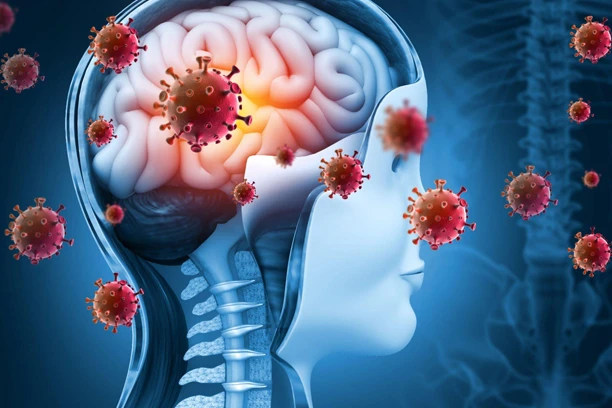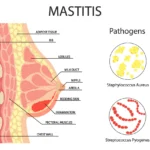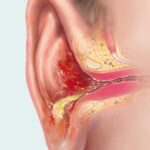Bacterial meningitis is a severe and potentially life-threatening condition characterized by the inflammation of the protective membranes (meninges) surrounding the brain and spinal cord. This article delves into the causes, symptoms, diagnosis, treatment, and prevention of bacterial meningitis to equip readers with an in-depth understanding of the disease.

when bacteria infect the meninges, leading to inflammation and damage. Unlike viral meningitis, which is usually less severe, bacterial meningitis can progress rapidly and result in significant complications, including brain damage, hearing loss, or death if not promptly treated.
Common Causes
Several bacterial strains can cause meningitis. The most common pathogens include:
- Streptococcus pneumoniae: The leading cause in adults and children.
- Neisseria meningitidis: Responsible for outbreaks, particularly in close-contact settings.
- Haemophilus influenzae: Previously a leading cause but now less common due to vaccination.
- Listeria monocytogenes: Affects newborns, the elderly, and immunocompromised individuals.
- Escherichia coli: A common cause in newborns, especially during delivery.
Symptoms of Bacterial Meningitis
Symptoms of bacterial meningitis can appear suddenly and vary based on age and underlying health conditions. Key signs include:
- Severe headache
- Stiff neck
- High fever
- Nausea and vomiting
- Sensitivity to light (photophobia)
- Altered mental status or confusion
- Seizures
In infants, symptoms may include:
- Bulging fontanelle (soft spot on the head)
- Poor feeding
- Irritability or lethargy
How is Bacterial Meningitis Diagnosed?
Accurate and timely diagnosis is critical. Healthcare providers use the following methods:
- Medical History and Physical Examination: Identifying risk factors and assessing clinical signs.
- Lumbar Puncture (Spinal Tap): Collecting cerebrospinal fluid (CSF) to analyze for bacteria.
- Blood Tests: Detecting bacteria or inflammatory markers.
- Imaging Studies: CT or MRI scans to assess brain swelling or complications.
Treatment of Bacterial Meningitis
Prompt treatment is essential to reduce mortality and complications. Standard therapies include:
- Antibiotics: Intravenous antibiotics are administered immediately to target the causative bacteria.
- Corticosteroids: Reduce inflammation and prevent neurological damage.
- Supportive Care: Includes intravenous fluids, oxygen, and monitoring of vital signs.
Hospitalization is often required, particularly for severe cases.
Complications
If untreated or delayed, bacterial meningitis can lead to:
- Hearing loss
- Cognitive impairments
- Seizures
- Stroke
- Septicemia
- Death
Prevention
Preventive measures can significantly reduce the risk:
- Vaccination:
- Pneumococcal vaccines (PCV13, PPSV23)
- Meningococcal vaccines (MenACWY, MenB)
- Hib vaccine (Haemophilus influenzae type b)
- Prophylactic Antibiotics: Given to close contacts of infected individuals.
- Good Hygiene Practices:
- Wash hands regularly.
- Avoid sharing personal items.
- Healthy Lifestyle: Strengthen the immune system through a balanced diet and regular exercise.
Global Burden of Bacterial Meningitis
its a remains a public health concern, particularly in developing countries. Outbreaks are common in the “meningitis belt” of sub-Saharan Africa, where limited access to vaccines exacerbates the problem. Efforts to improve vaccination coverage and healthcare infrastructure are vital.

